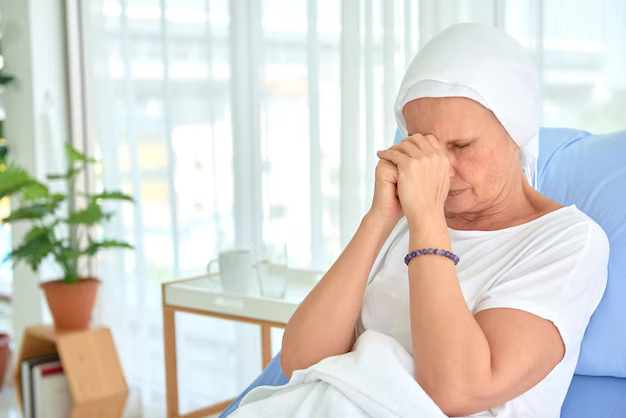Understanding the Experience: What Does Cancer Feel Like?
Cancer is a word that often evokes fear and uncertainty. For those who have been touched by it, either directly or through loved ones, it’s more than just a health condition—it’s a profound life event. What does cancer feel like, though? Is it merely a physical sensation, or does it encompass more? Let's delve deeper to uncover the myriad experiences associated with this complex disease, offering insights and context to those seeking understanding.
The Physical Experience of Cancer
Symptoms That Prompt Diagnosis
For many, the journey with cancer begins with subtle symptoms that are easy to overlook. Early signs of cancer can vary significantly depending on the type and location. Some common symptoms include:
- Unexplained weight loss: Sudden drops in weight without changes in diet or exercise can be alarming.
- Fatigue: A persistent sense of tiredness that doesn't improve with rest.
- Pain: Often localized, pain can be a key indicator of underlying issues.
- Changes in skin: Look out for yellowing, darkening, or reddening of the skin, as well as new moles or changes to existing ones.
- Lumps or swelling: Noticing any unusual growths can be an early sign of cancer.
The Sensations During Treatment
Cancer and its treatment can alter the body's sensations drastically. Treatments such as chemotherapy, radiation therapy, and surgery might cause:
- Nausea and Vomiting: Common side effects of chemotherapy, often managed with medication.
- Neuropathy: Tingling or numbness, usually in the hands and feet.
- Pain and Discomfort: Can vary in intensity and location, subject to the type of cancer and treatment.
Long-Term Physical Changes
Post-treatment, many survivors may face long-term physical changes. These can include:
- Scarring and Sensitivity: Resulting from surgery or radiation.
- Chronic Fatigue: A prolonged feeling of exhaustion that may linger.
- Altered Physical Function: Depending on the treatment area, some may experience changes in mobility or organ function.
The Emotional and Psychological Terrain
Initial Shock and Anxiety
Upon diagnosis, many experience a rollercoaster of emotions. Shock, disbelief, and fear are common initial reactions. The mind races with questions about the future, treatment, and outcomes.
Dealing with Uncertainty
Cancer is often marked by uncertainty. Every scan, blood test, or doctor's visit can evoke anxiety. Patients might employ various strategies to manage this, such as:
- Mindfulness and Relaxation Techniques: Practices like meditation or yoga can promote mental peace.
- Support Groups and Counseling: Talking to others going through similar experiences provides a sense of community and understanding.
Finding Hope and Resilience
Amidst the challenges, many find a resilient spirit and hope. Connections strengthen with family and friends, and new perspectives on life often emerge. Gratitude for small joys becomes more pronounced.
Impact on Daily Life and Relationships
Changes in Routine
Cancer can disrupt daily routines significantly. Doctor's appointments, treatment schedules, and fluctuating energy levels require adaptability. Everyday tasks may demand more effort or assistance.
Social Interactions and Support
Social dynamics may change as well. Some friends may become distant, unsure of how to engage, while others rise to offer unwavering support. Communication becomes crucial, helping others understand the patient's needs and boundaries.
Financial and Career Implications
Beyond the physical and emotional toll, cancer can impact finances and careers. Medical bills, transportation for treatment, and potential loss of income due to inability to work present additional hurdles. Seeking advice from financial advisors or support from care centers can be invaluable.
Cultural and Societal Perceptions
The Stigma Surrounding Cancer
Despite modern advancements, cancer can carry a societal stigma. Misunderstandings and misconceptions might lead to uncomfortable interactions or comments. Education and awareness are key to breaking down these barriers.
Media and Cancer Narratives
Books, movies, and media often depict cancer in dramatic terms, which can influence public perception. While these narratives can raise awareness, they may also skew understanding of the true day-to-day experiences, making personal stories and testimonials crucial for balanced insight.
Empowering Understanding for Those Affected
The Role of Information and Resources
Knowledge is empowering. Those affected by cancer can benefit from accessing credible information, be it through books, reputable websites, or healthcare providers. Staying informed about the specific type of cancer and treatment options can provide a sense of control.
Building a Strong Support Network
Surrounding oneself with a supportive network is critical. This includes family, friends, healthcare providers, and fellow patients. Support groups, either in-person or online, offer space for sharing and receiving advice.
Self-Advocacy in Healthcare
Patients are encouraged to actively participate in their healthcare decisions. Asking questions, voicing concerns, and seeking second opinions when needed are important aspects of self-advocacy that ensure personalized and effective care.
In understanding what cancer feels like, we see a tapestry of experiences—physical, emotional, and social intricacies interwoven with hope and resilience. Each journey is unique, yet connected by shared threads of humanity, strength, and the quest for understanding.
Key Takeaways on the Cancer Experience:
- Initial Symptoms: Weight loss, fatigue, pain, skin changes, and lumps.
- Treatment Sensations: Nausea, neuropathy, pain post-treatment.
- Emotional Journey: Shock, uncertainty, finding hope.
- Daily Life Impact: Routine changes, social dynamics, financial challenges.
- Support Structures: Access to information, building networks, self-advocacy.
Through these experiences, understanding and empathy deepen, guiding us collectively to better support those walking this path. 🌟

Related Articles
- Are Breast Cancer Lumps Painful
- Are Chills a Sign Of Cancer
- Are Colon Spasms a Sign Of Cancer
- Are Lytic Lesions Always Cancer
- Are Polyps Cancer
- Can a Blood Test Detect Cancer
- Can a Ct Scan Detect Cancer
- Can a Dexa Scan Show Cancer
- Can a Gastric Emptying Scan Show Cancer
- Can a Lung Biopsy Cause Cancer To Spread
